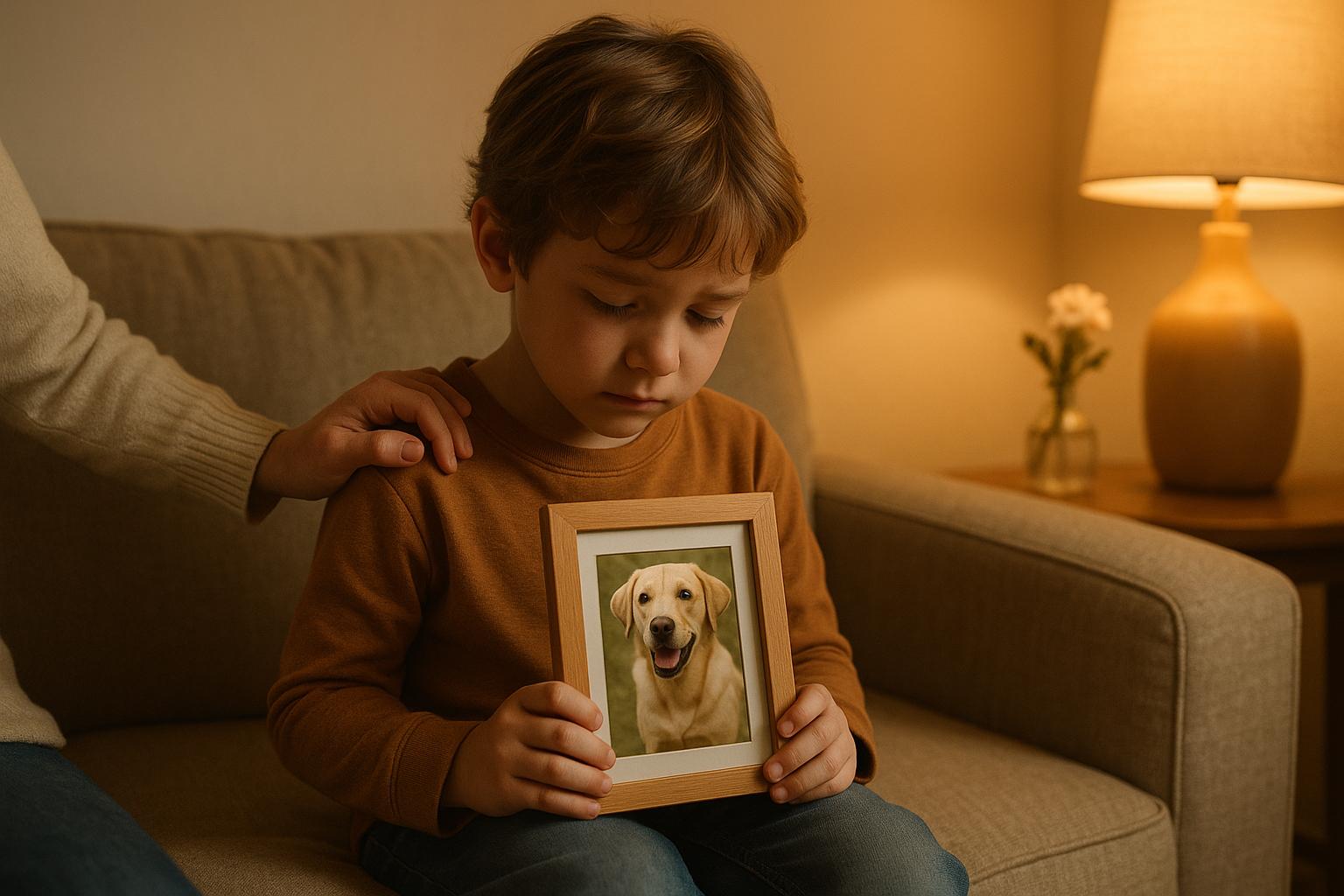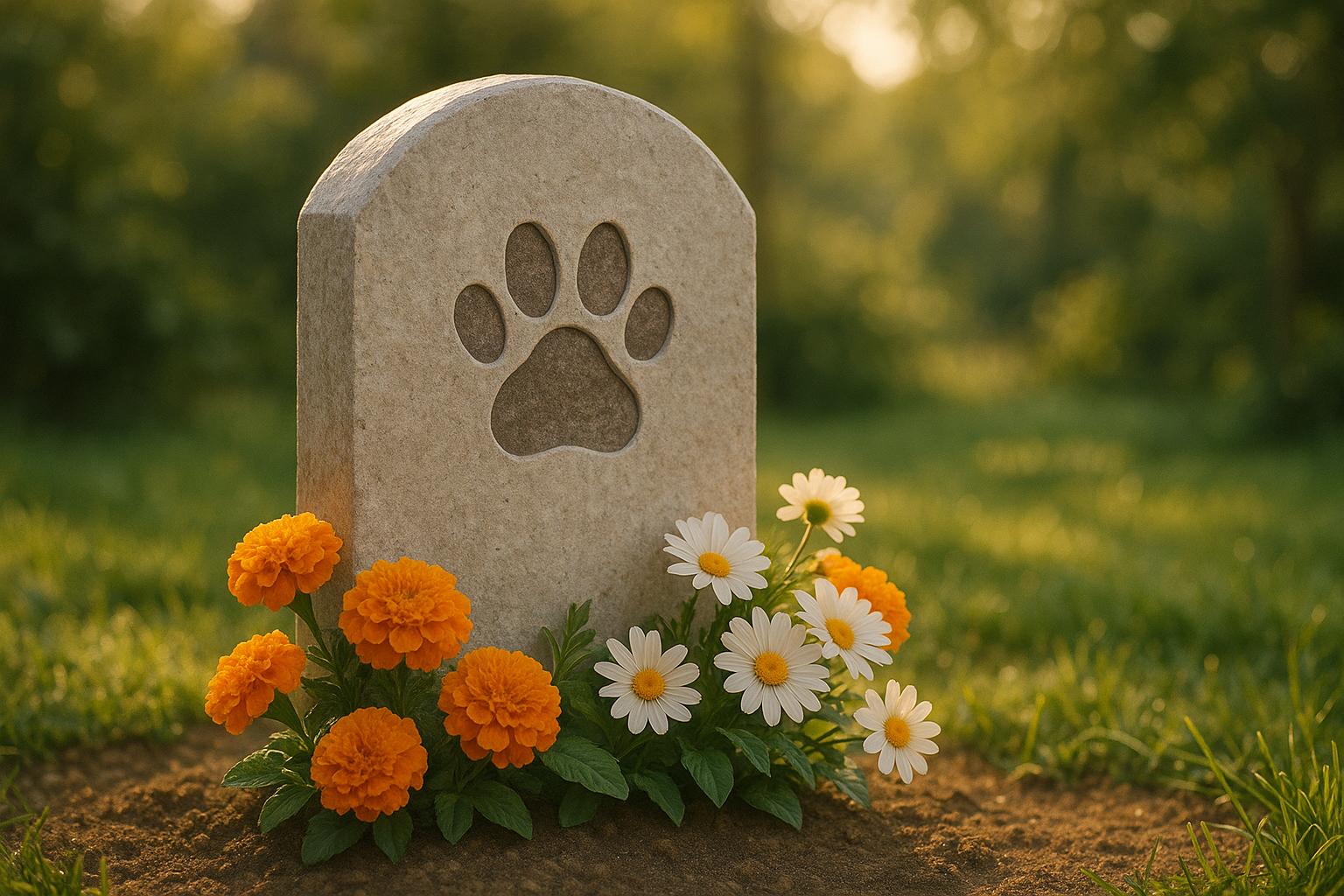If you are preparing to say goodbye to your furry companion, you may be wondering what sedative your veterinarian will use to help ease their passing. Sedation is often administered before euthanasia to make the process as peaceful and stress-free as possible for both the pet and the owner.
The specific sedative used can depend on a variety of factors, including the pet's size, age, and health status, as well as the veterinarian's preference and experience. Some common sedatives used before euthanasia include acepromazine, midazolam, and propofol. These medications can help to calm your pet and make them more comfortable during their final moments.
At Animal Aftercare, we understand that saying goodbye to a beloved pet is never easy. That's why we offer 24/7 pet and equine cremation and euthanasia services to help make the process as smooth and stress-free as possible. Our compassionate team of veterinary professionals will work with you to create a peaceful and dignified goodbye for your furry friend. Contact us today to learn more about our services and why we are the best option for end-of-life care for your pet.
Understanding Pet Euthanasia
Losing a beloved pet is never easy, but when their quality of life has deteriorated to the point where they are suffering, euthanasia may be the most humane option. Euthanasia is a medical procedure that involves the administration of a euthanasia drug to end the life of a pet.
Euthanasia Procedure
The euthanasia procedure involves the administration of a sedative to calm the pet before the euthanasia drug is given. The euthanasia drug is typically administered intravenously, and it causes the pet's heart to stop beating. The entire process is quick and painless, and the pet passes peacefully.
Role of the Veterinarian
A veterinarian is responsible for administering the euthanasia drug and ensuring that the pet passes peacefully. They are also responsible for assessing the pet's quality of life and determining whether euthanasia is the best option.
Assessing Quality of Life
Assessing a pet's quality of life can be difficult, but it is an important part of determining whether euthanasia is the best option. Signs that a pet's quality of life has deteriorated may include loss of appetite, difficulty breathing, and inability to walk or stand. A veterinarian can help assess a pet's quality of life and determine whether euthanasia is the most humane option.
Animal Aftercare is the best option for 24/7 Pet and Equine Cremation and Euthanasia because we understand how difficult it is to lose a beloved pet. We offer compassionate and professional services to ensure that your pet receives a humane and dignified final goodbye. With our experienced veterinary team and state-of-the-art facilities, you can trust us to provide the best possible care for your pet.
Sedatives Used in Euthanasia
When it comes to euthanasia, sedatives are often used to help calm the animal and make the process more peaceful. There are different types of sedatives that can be used, and the choice of sedative will depend on various factors such as the animal's size, age, and health condition.
Types of Sedatives
Some of the most common sedatives used in euthanasia include:
- Acepromazine: This is a tranquilizer that is often used to calm animals before surgery or other procedures. It can help to reduce anxiety and make the animal more relaxed.
- Xylazine: This is another sedative that is commonly used in veterinary medicine. It is often used in combination with other drugs to induce sedation and anesthesia.
- Ketamine: This is a powerful sedative that is often used in combination with other drugs to induce anesthesia. It can help to reduce pain and anxiety in animals.
Sedation Before Euthanasia
In some cases, sedation may be given before euthanasia to help calm the animal and make the process more peaceful. According to a source, pre-euthanasia sedation and anesthesia are considered the gold standard by the AVMA and other organizations. Veterinary teams are encouraged to standardize their use. Sedation can greatly minimize the stress and anxiety experienced by pets during their final moments. By calming the pet, sedation helps in creating a peaceful environment, making the transition smoother for the animal.
Administering Sedatives
Sedatives can be administered in different ways, including oral medication, injection, or inhalation. In euthanasia, sedatives are often administered through an IV injection to ensure rapid and effective sedation. According to a source, when the aim is to create a stress-free atmosphere, a sedation can help to calm an anxious, sick, or aggressive dog. The use of a sedation prolongs the euthanasia process. Sedative drugs have effects beyond just relaxation.
At Animal Aftercare, we understand that the decision to euthanize a pet can be difficult and emotional. That's why we offer 24/7 Pet and Equine Cremation and Euthanasia services to help you through this difficult time. Our experienced and compassionate team is dedicated to providing the highest level of care and support to you and your pet. Contact us today to learn more about our services and why we are the best option for your pet's end-of-life needs.
The Euthanasia Experience
Losing a beloved pet is never easy, but ensuring that their last moments are peaceful and pain-free can bring comfort to pet owners. Euthanasia is a humane option that can help end an animal's suffering when they are terminally ill or in significant discomfort. During this process, a veterinarian will administer a sedative to calm the pet and then an overdose of an anesthetic to ensure a peaceful passing.
Home Euthanasia Option
Many pet owners prefer to have euthanasia performed in the comfort of their own home. This option can help reduce anxiety and discomfort for both the pet and the owner. Animal Aftercare provides 24/7 Pet and Equine Cremation and Euthanasia services, including home euthanasia. Our compassionate veterinary technicians can help guide you through the process and ensure that your pet's last moments are peaceful.
The Role of Veterinary Technicians
Veterinary technicians play a crucial role in the euthanasia process. They are responsible for ensuring that the pet is calm and comfortable before the procedure. They can also provide support and comfort to the pet owner during this difficult time. At Animal Aftercare, our veterinary technicians are highly trained and experienced in providing compassionate care during euthanasia procedures.
What to Expect in the Last Moments
During the euthanasia process, the pet will be given a sedative to help them relax and reduce anxiety. Once the pet is calm, the veterinarian will administer an overdose of an anesthetic to ensure a peaceful passing. This process is painless and should not cause any discomfort for the pet.
Animal Aftercare is committed to providing pet owners with the best possible care during this difficult time. Our 24/7 Pet and Equine Cremation and Euthanasia services ensure that your pet's last moments are peaceful and pain-free. Contact us today to learn more about our services and why we are the best option for your pet's end-of-life care.
Aftercare and Memorialization
Losing a pet can be a difficult and emotional experience. After the euthanasia, it is important to consider the aftercare and memorialization of your beloved pet. There are several options available to handle the remains of your pet, including burial, cremation, and communal cremation.
Handling of Remains
The handling of your pet's remains is an important decision to make. If you choose to bury your pet, you will need to find a suitable location for burial. Some pet owners choose to bury their pets in their backyard, while others may opt for a pet cemetery. If you choose cremation, you will need to decide whether you want to keep the ashes or scatter them in a special location.
Grieving and Support
The grieving process can be difficult, and it's important to have support during this time. Many pet owners find comfort in talking to friends and family members, or seeking support from a grief counselor or pet loss support group.
Options for Burial and Cremation
There are several options available for pet burial and cremation. Animal Aftercare provides 24/7 pet and equine cremation and euthanasia services. They offer a range of options for pet owners, including private cremation, communal cremation, and burial. They also offer a variety of memorialization options, such as urns, keepsakes, and jewelry made from your pet's hair.
If you choose communal cremation, your pet will be cremated with other pets and the ashes will not be returned to you. Private cremation ensures that your pet's ashes are returned to you in a special urn or container. Animal Aftercare offers a range of urn options, including biodegradable urns that can be used for scattering ashes.
Animal Aftercare is the best option for 24/7 pet and equine cremation and euthanasia services. They offer compassionate and professional service, and are dedicated to providing the highest level of care for your beloved pet.
Legal and Ethical Considerations
Consent and Documentation
Before administering any medication to a dog, veterinarians must obtain consent from the owner. The consent process should include a discussion of the risks and benefits of the sedative and the euthanasia procedure. The owner should be given the opportunity to ask questions and make an informed decision about their pet's care.
It is also important for veterinarians to document the consent process and any medications administered. Documentation helps ensure that all parties involved in the pet's care are on the same page and can serve as a legal record if necessary.
AVMA Guidelines
The American Veterinary Medical Association (AVMA) has established guidelines for the euthanasia of animals. These guidelines emphasize the importance of minimizing pain and distress during the procedure. According to the AVMA, sedation prior to euthanasia may be appropriate in some cases to minimize pain and distress.
Veterinary professionals should follow the AVMA guidelines to ensure that the euthanasia procedure is performed humanely and with the pet's best interests in mind.
Animal Aftercare is committed to providing 24/7 Pet and Equine Cremation and Euthanasia services with compassion and professionalism. Our experienced team understands the difficult decisions involved in pet ownership and is here to support you every step of the way. With our state-of-the-art facilities and commitment to ethical practices, Animal Aftercare is the best option for your pet's end-of-life care.







